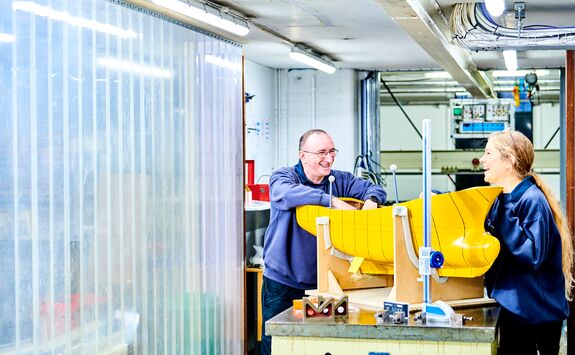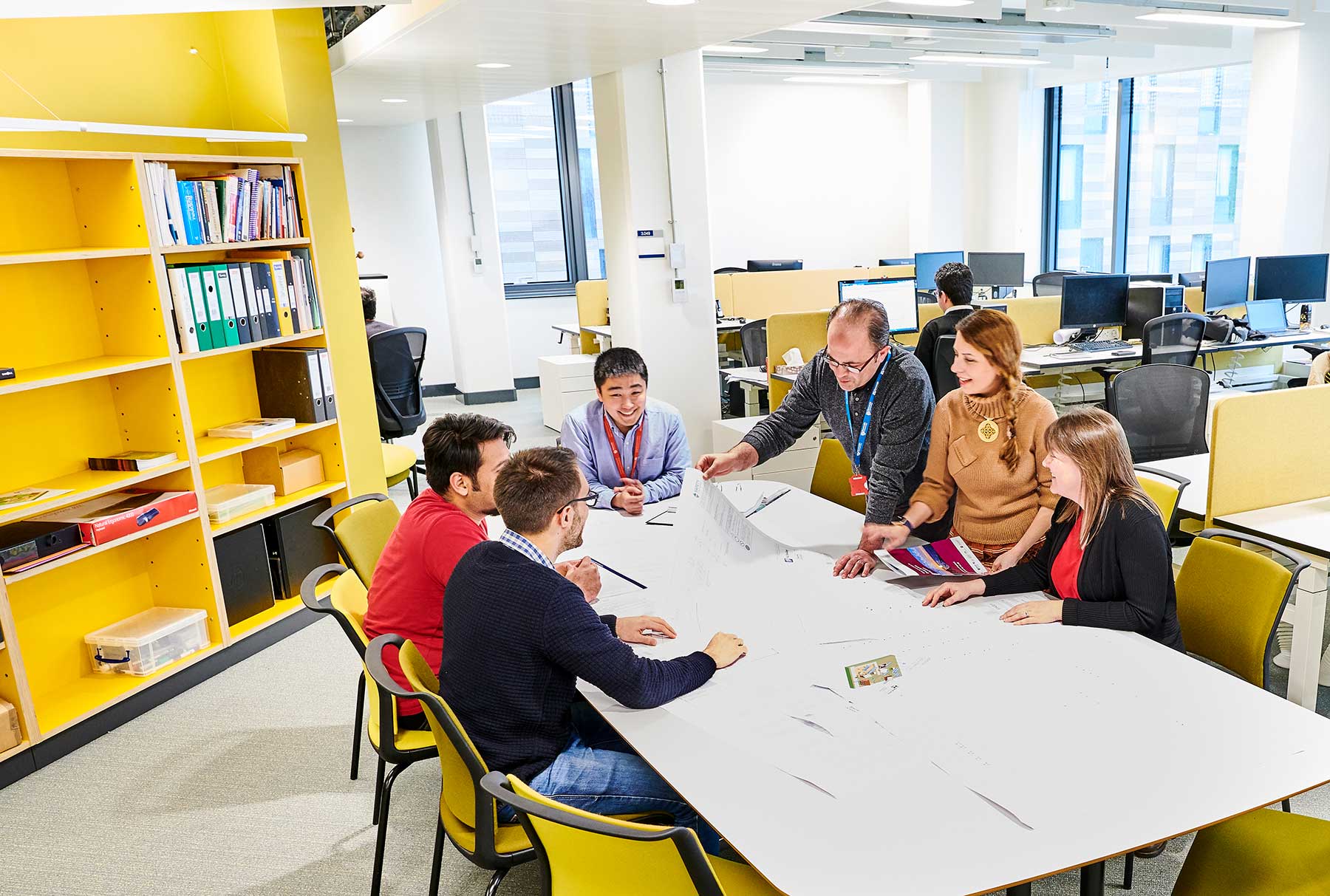Research Culture Action Plan
Our research culture action plan is based on what we've heard so far from our research community. This includes everyone who contributes to our research, enhancing its quality and reach.
Evolving and adapting
This is a living plan, that will continue to evolve and adapt, through:
- continuing conversations and collaborations with our research community
- learning what works and what doesn’t
- taking opportunities to work with external partners or respond to emerging challenges
We will be open about these changes and regularly update on our progress.

Top priority projects
To drive meaningful change effectively, we’ve identified a set of top priority projects within the Research Culture Action plan – chosen for their urgency, value, and potential impact. This is in response to internal needs, external opportunities, and shifts in the higher education landscape.
Behaviour Matters
People are at the heart of everything we do, and as a university, we want to create environments where people and their ideas can thrive. Whilst there are examples of great teamwork and people supporting the careers of others, this isn't everyone's experience. Evidence from consultations across the institution has identified a need to improve behaviours in some areas and better understand how instances of bullying, discrimination, prejudice, and other kinds of inappropriate behaviour have been tolerated in others.
We are working closely with our community on an ambitious two-year project, endorsed by the University’s Executive Board, to tackle inappropriate behaviours and promote positive ones across the organisation. This builds on established positive activity in this area, including our 'Leading Through Values' and 'Bystander Training' programmes, as well as the development of our online EDI Toolkit. Taking a holistic and bold approach, the project tackles difficult issues head-on with the aim of creating lasting cultural change.
The initial work is centred on three key themes:
- ensuring our policies and procedures are fit for purpose
- developing resources and networks to power culture change
- raising the visibility of this issue and the challenge we're taking on
Open Research
Open Research applies the principles of openness across the research cycle, from inception and design, to data collection, analysis, and dissemination. Adopting these practices is important to us as it increases the rigour, transparency, and reproducibility of our research, promotes collaboration and inclusivity, and enhances public trust in the research we do.
As part of this work, we are:
- implementing a comprehensive training programme in open research practices
- collating existing University training and resources, as well as developing new training through engagement with the UK Reproducibility Network (UKRN) Open Research Programme
- recruiting colleagues to participate in UKRN-accredited train-the-trainer courses, enabling them to deliver open research training across the University
- establishing a flourishing network of Open Research Champions
Releasing Quality Time
Consultations with our research community have highlighted that time is a major barrier to enabling and sustaining a positive research culture. We want our community to have quality time to nurture creativity, solve problems, and pursue professional development opportunities.
The project explores ways to support researchers in protecting time for research and research-enabling activity.
Initiatives include:
- internal and external research retreat opportunities
- co-creating an accessible online guide and a dedicated workshop for retreat facilitation
- developing a vacation scholarship scheme in collaboration with the Developing Excellent Researchers Group
- sharing and promoting innovative ways to 'release quality time' across the institution, starting with an event to engage academic unit leaders
Research Integrity
Research integrity is key to the research we carry out at Newcastle. The Concordat to Support Research Integrity define research integrity as a set of individual and collective behaviours that define good research practice: honesty, rigour, transparency and open communication, care and respect, and accountability.
This project supports research practice by promoting and enhancing training, tools, and resources that help researchers embed integrity throughout the entire research lifecycle.
It focuses on five key areas:
- research integrity training
- authorship practices
- promotion of ORCID IDs
- responsible use of generative AI in research
- the responsible use of research metrics
Maturity Framework
Research Culture is a broad topic, and often difficult to define. Like many institutions, we are working with the research community to enable and sustain a positive research culture. However, while there are many projects and policies that can be implemented across the institution, an impactful and lasting change to research culture relies on local action as well as institutional enablers.
To help us capture, support, and celebrate the wealth of community-led work already happening, we’ve developed - and are now piloting - a Research Culture Maturity Framework.
The framework is designed to help research groups and teams:
- reflect on their current research culture
- evaluate what's working well
- identify priorities for improvement in a structured, supportive way
Reimagining Leadership
Funded by the Wellcome Institutional Fund for Research Culture (IFRC), this project is developing and evaluating new ways to support and reward leaders in research to create individual and team relationships through which people and research can thrive. Using Participatory Action Research (PAR), we have welcomed leaders in research from across our community to join us as ‘co-researchers’ and pilot a six-month leadership development programme based around reflexive practices.
Whilst the project is funded by Wellcome and focuses on research leadership, we will consider how our learnings can be embedded into other leadership programmes at Newcastle, making them available for a wider range of colleagues. We intend to share our project tools, resources and knowledge with the wider sector.
Five focus areas for 2025 are:
- regular workshops with our Participatory Action Research Group - exploring opportunities for how leaders can create psychological safety and inclusion at Newcastle University, using the PAR methodology
- engaging with our first leadership cohort in collaboration with our Organisational Development team
- developing a draft framework for the new Reward and Recognition practice
- engaging with the wider sector to gather feedback and help shape our intervention work
- refining our plan for evaluating the impact of the project across all work streams

